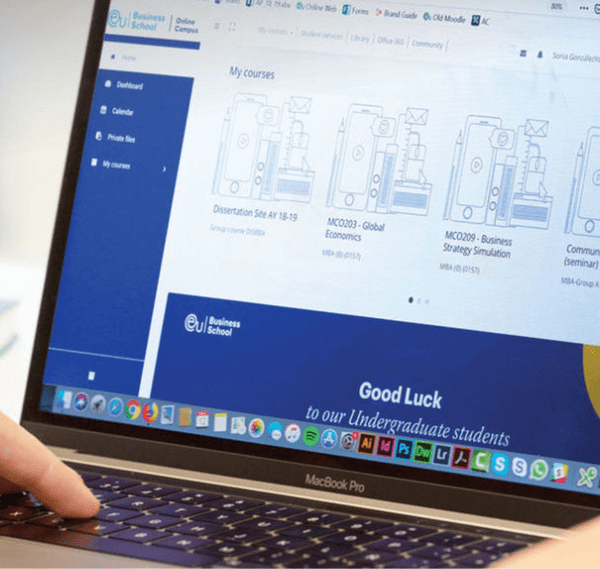So many things have changed in the last two years, and how we do business is definitely one of them. For this reason, there will likely be a renewed focus on the idea of responsible leadership post-pandemic. This makes sense, given the important role that businesses have played during the crisis.
What does it mean to be a responsible leader, though? It’s easy to espouse these ideas but much more challenging to embody them.
Here are seven ways you can adapt your approach and be a more responsible leader to meet the needs of these utterly transformed times.
1. Use empathy and understanding.
Businesses focused on the bottom line have been known to prioritize investors and clients above everyone else.
A responsible leader thinks about their business at all angles. That means they show concern for the people who occupy all positions related to their business, including suppliers and employees at every level.
This also entails considering the broader impact of every company action. For example, how will leadership decisions affect the general public? Just because their methods are legal doesn’t mean they’re necessarily ethical.
A responsible leader recognizes this, listens to a wide range of perspectives and strives to act in the best interests of the majority.
2. Place purpose above profit.
Of course, businesses are based on turning a profit. However, responsible businesses plan to achieve much more than that. They have a bigger purpose, one that’s rooted in social good.
In practice, this means not every decision made will necessarily be the most profitable one possible. At times, profit margins might be sacrificed to ensure the business stays aligned with its values.
A responsible leader understands that their business can contribute to social problems or promote positive change. They will strive for the latter, even if that goes against conventional economic wisdom.
Essentially, every decision a responsible leader makes should be guided by their purpose.
3. Be brave.
It’s incredibly easy to follow trends and obey prevailing ideologies. However, it can also be extremely irresponsible. Sometimes hegemonic ideas need to be challenged for progress to be made.
This is the role of a responsible leader, who shouldn’t be afraid to try something new and daring if it could have a positive impact. The word “responsible” might sound boring. In practice, it should be anything but!
Responsible leadership doesn’t mean maintaining the status quo. In a business context, it means taking ownership of a problem and being brave enough to act, even if that action is unconventional or unpopular, to solve it.
Not every idea will generate positive results, of course. There is bravery involved in failure, though, and a responsible leader accepts, admits, and learns from their mistakes.
4. Think long-term.
Responsible leaders aren’t reactive; they’re proactive! They anticipate problems and take preventative action rather than just waiting for issues to arise.
Long-term thinking is vital for responsible leaders. After all, what might be immediately profitable could be incredibly damaging to the environment in years to come. A one-day deal that attracts crowds of customers could seriously overwork loyal employees for a month.
To be a responsible leader, your overriding goal must be to build a sustainable business. This means developing products, business models, and modes of working that won’t burn out.
A responsible leader often has to balance competing demands. That’s because they aren’t just interested in the long-term potential for profit; they’re also invested in the long-term future of the planet and the people who live on it.
5. Be receptive.
Outdated notions of leadership revolve around one appointed superior dictating their plans to the rest. This doesn’t fit the new model of responsible leadership, which recognizes the importance of open dialogue.
A responsible leader doesn’t need to know everything. It’s more important that they know they don’t know everything! Instead, they should be willing to listen to experts on topics beyond their scope of knowledge.
They should also be comfortable participating in collective decision-making. This shows that they value the perspectives of those they work with.
Faith in responsible leadership, then, isn’t generated through transmitting illusions of infallibility. Instead, it comes as part of the development of sincere and trusting mutual relationships.
In this way, responsible leadership is much more about listening than it is about talking.
6. Approach innovation responsibly.
In our increasingly digitized and tech-heavy times, companies often rush to be the “first.” As a result, there is pressure to constantly break new ground to stay relevant and get ahead of the competition.
A responsible leader has a sensible approach to innovation. They only launch products and services that align with their purpose. Being consistently ethical is more important than coming first.
Before introducing innovations to the public, responsible leaders consider the potential consequences. With technology, for example, they measure privacy and wellbeing concerns against the potential social good of each product.
“Should we?” is just as important a question as “can we?” to a responsible leader.
7. Take diversity seriously.
Arguably, diversity has been treated as a buzzword by most business leaders in the past. They may have claimed a commitment to the concept, but there has been a lack of concrete action to back up their alleged beliefs.
Responsible leaders are different. They incorporate diversity into every element of their business, and the measures they take are impactful as opposed to merely tokenistic.
The diversity measures of responsible leaders aren’t based on assumptions or stereotypes. Instead, these leaders are committed to learning more about what diverse communities need, directly from the communities themselves. Then, they use this information to guide their approach.
Based on this list, the leadership qualities required to be responsible include empathy, integrity, bravery, accountability and openness.
This shows that the old-fashioned idea of an aggressively authoritative leader is obsolete. Instead, the new model of responsible leadership is much more focused on soft skills: a human touch and strong working relationships.
Also, a mere awareness of social and environmental concerns is no longer sufficient. A responsible leader should be deeply committed to enacting positive change, even and especially if that comes at a financial cost.











